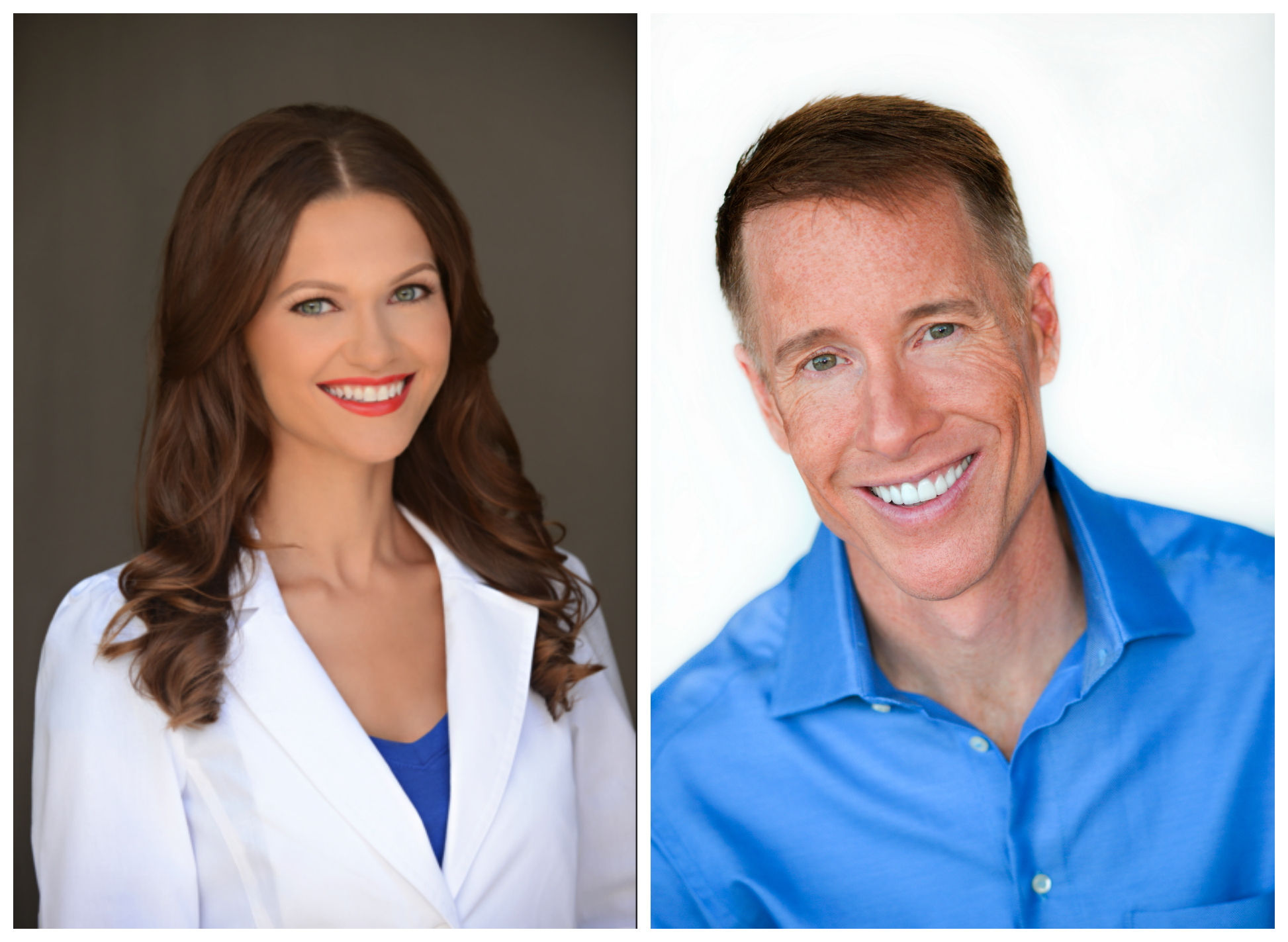- Have any questions?
- 480-767-9018
- support@in-goodhealth.com

How to Balance MALE Hormones
April 13, 2023
Dr. Izabella Wentz and Dr. C Interview
April 19, 2023
How to Balance MALE Hormones
April 13, 2023
Dr. Izabella Wentz and Dr. C Interview
April 19, 2023Hey, there! Dr. Alan Christianson here. This is going to be a very tactical podcast about improving your cortisol metabolism. We will discuss the pitfalls to watch for. I recently had a patient who had been struggling with adrenal problems. She was diagnosed as having very low adrenal function. Her cortisol scores were normal in the afternoon and evening but remarkably low early in the day. In my new book, THE ADRENAL RESET DIET, I call this being “crashed.” I talk about different levels of adrenal distress, and “crashed” is the lowest level. At this level, people can be horribly fatigued, depressed, have aches and pains and just not be functioning well. It can also badly affect sleep, weaken the immune system and probably create a long-term risk. It’s a big deal and very important to correct.

My patient’s previous doctors felt it would be helpful for her cortisol to be higher, so they gave her hydrocortisone pills. Ironically, taking cortisol was not a path back to health. Hydrocortisone is very similar to the cortisol your body makes, so it increased her cortisol levels. The problem was she put on 20 pounds in the first few weeks. This had never happened to her. Her weight had fluctuated no more than four pounds all of her adult life. She was in her mid-40’s, and her weight had remained the same since high school–until she took the hydrocortisone. Besides the weight gain, she had severe acne, fluid retention, thinning hair and severe anxiety. She wanted to stop taking the pills, but since the doctors thought she needed a long weaning process, she ended up being on them for several months. After she got off the pills, she was still in that unhealthy state. I was able to work with her and recommend some basic dietary ideas. I talked to her about getting sunlight in the morning and using some simple herbs to help her body make cortisol. We saw her scores improve over a period of time.
So, why didn’t it help to take the cortisol? I totally understand the doctors’ reasoning. It seems so logical that if low cortisol is causing her symptoms, why couldn’t you just increase it with the pills, and make everything better? Well, here is what is going on: When you have an adrenal disease, the adrenal glands cannot do what the body wants them to do. The biggest adrenal disease is Addison’s disease, which is an autoimmunity of the adrenals. The immune system attacks the adrenals and breaks them down to where they cannot produce enough hormone for your needs. There is a signal from the pituitary gland to the adrenals, telling them to make hormones. This signal is a hormone the pituitary gland releases called ACTH or adrenocorticotropic hormone. In cases of Addison’s disease, there is no cortisol being made, and there is a very high level of ACTH. So, your brain is yelling at your adrenals to work, and they are not working. Your body is trying to get something that it is not getting. In that case, it is smart to give it what it wants, to take something like cortisol. Oddly enough, hydrocortisone is probably not the best fit. We use different versions that are more effective. In this case, the person will be healthier by having it than by not having it.
When you have adrenal dysfunction, like my patient had, it is a different story. I address adrenal dysfunction in my new book, where I cover the levels of adrenal distress: crashed, wired or tired, or stressed. If we look at the ACTH level, it will not be elevated. There is low cortisol, but the body wants low cortisol. In my patient’s case, her system did not really want the cortisol from her own body. She was capable of making it, and she did make it at certain times, but her body did not want it because it was really run-down and exhausted. So, it took rest, relaxation, rejuvenation and restoring her cycles and daily rhythms for her body to want to make cortisol again. Pouring cortisol into her body (through the pills) was fighting against what the body was trying to achieve. That is why she had so many, troubling side effects.

This is just a quick message and warning. If you have had problems with your adrenal glands, many times doctors like to give hydrocortisone. Again, I totally understand their logic. There may even be times you feel better at first. Hydrocortisone can act as a stimulant. If you’re tired, you may feel a burst of energy or more stimulated for a period of time. Unless you have a disease in which you cannot make cortisol, you will not be moving your health in the right direction. You will not be working with your body’s attempt to come back to homeostasis. So, we always have to distinguish things that seem to feel better in the short term from things that really move you towards a state of more resiliency. This is our goal. We want you to feel better because you are better. We do not want you to feel better, and be tricked. We want you to feel better because your health is improving and your vitality is increasing.
If you are crashed, take a look at the chapter on crashed in the new book and think about botanical medicines. Think about timing of light. Think a lot about rest and all the factors that give rise to it. Your blood sugar is a critical one, too. So, manage all the factors that raise your resiliency, and know you can do better and your cortisol production can come back again. If you take cortisol, you are not giving your body what it wants. You are giving your body what it is trying to avoid. You will also make it harder for your body to make more cortisol because you will pull away from your adrenals that much further.
You can get better. You can improve. It is all totally possible. Dr. Alan Christianson here, and we will talk again soon.

P.S. Whenever you are ready, here is how I can help you now:
- Schedule a Thyroid Second Opinion with me, Dr. C, Click Here for Details
- Need help to choose supplements? Click ‘Help Me Decide Here'
- Get my top books Here
Dr. Alan Glen Christianson (Dr. C) is a Naturopathic Endocrinologist and the author of The NY Times bestselling Hormone Healing Cookbook, The Metabolism Reset Diet, and The Thyroid Reset Diet.
Dr. C’s gift for figuring out what works has helped hundreds of thousands reverse thyroid disease, heal their adrenals, and lose weight naturally. Learn more about the surprising story that started his quest.







